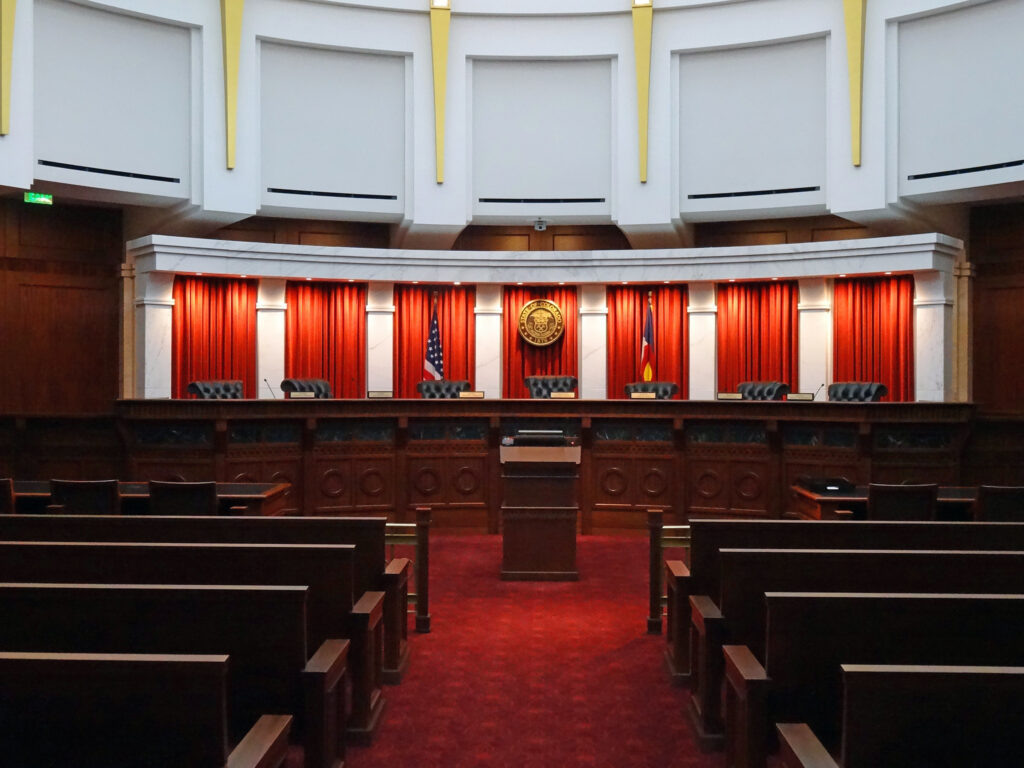
Judges across the country have been asked to consider numerous cases challenging Donald Trump’s eligibility to serve as president. Section 3 of the 14th Amendment bars those who “have engaged in insurrection or rebellion against the [Constitution], or given aid or comfort to the enemies thereof” from serving in public office. But there is debate over what counts as insurrection, what it means to engage in it, and which individuals are included in the amendment’s sweep.
Last month I predicted that some court, somewhere, would conclude that Trump was both an insurrectionist and covered by the amendment. Yesterday, the Colorado Supreme Court did just that.
Earlier, I explained the background issues relating to the decision. Yesterday’s decision overturns the Colorado state court ruling that prompted my previous post.
The full opinion is more than 200 pages long, but the majority held:
- That this is a justiciable question (that is, one that can be decided by the court);
- That the lower state court “did not err in concluding that the events at the U.S. Capitol on January 6, 2021, constituted an ‘insurrection,’“ nor in deciding
- That President Trump “‘engaged in’ that insurrection through his personal actions”;
- That the 14th Amendment “cannot be read to mean that the two highest offices in the government are excluded from the mandate of Section Three.”
- And thus that “President Trump is disqualified from holding the office of President under Section Three; because he is disqualified, it would be a wrongful act under the Election Code for the Secretary to list him as a candidate on the presidential primary ballot.”
This was not a unanimous decision; the court split 4-3. Dissenters argued that the court did not have authority under state law to take up the substantive questions of insurrection, and even that Section 3 is not “self-executing” – that it requires congressional action to lay out a procedure to enforce it. The court, one justice complained, had decided instead to “adjudicate a federal constitutional claim (a complicated one at that) masquerading as a run-of-the-mill state Election Code claim.”
It’s likely different state authorities will continue to come up with different answers – the Maine secretary of state held a hearing last week on these very questions. The Colorado ruling does not go into effect until early January – just before the state primary ballot is finalized – presumably to allow the U.S. Supreme Court a chance to consider the matter. As I noted in November, it surely will.



